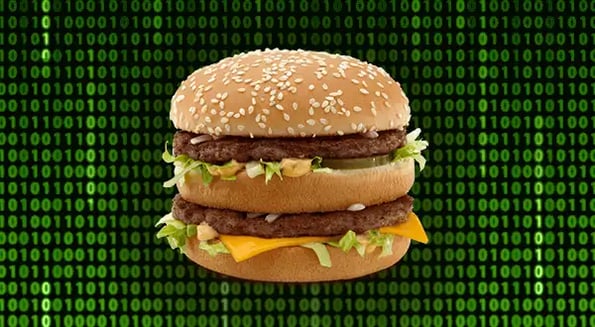Big data? More like Big Mac — until now. Yes, it’s true. McDonalds has announced it is finally stepping into the 21st century by embracing machine learning.

Ronald McDonald has agreed to acquire Dynamic Yield, a startup that provides retailers with algorithmically driven “decision logic” technology (more on that later).
Sources say Micky D’s offer values Daily Yield at a whopping $300m, which, if the deal goes through, will be the fast-food giant’s largest acquisition since buying Boston Market in 1999.
The actual burger king
Despite the fast-food-pocalypse, the burger boss still reigns supreme among its competition, serving around 68m customers every single day.
In 2017, its stock rose more than 40%, and 2018 hauled in almost $6B of net income. Now, it’s becoming a tech-forward fast food company.
Since CEO Steve Easterbrook took hold of the golden arches in 2015, the company has made a series of data-focused investments — from apps, to partnerships — and the acquisition of Dynamic Yield will reportedly tie them all together; starting with the drive-through.
‘Yes, we know you want fries with that’
Founded in 2011, Dynamic Yield has since partnered with major retail clients such as, Ikea, Sephora, and Urban Outfitters — now it’s adding itself to the happy-meal haven’s drive-through menu, bringing an Amazon-style personalization layer along with it.
The algorithm crunches various data like the weather, time of day, local traffic and, of course, prompts upselling by listing popular items at each location, as well as each customer’s personal sales data.
“Would you like another Shamrock shake to go with your 8 piece?”
And, for only a little more data, the algorithm can be super-sized
If you think that a company with 14k restaurants is going to throw over $300m at a machine-learning company just to super-size its drive-thru — you need to lay off the Szechuan sauce.
Daniel Henry, McDonald’s executive vice president, told Wired he expects McDonald’s to integrate its new machine-learning system across all facets of the Mickey D’s service strategy.
“It’s only going to get smarter and smarter, the more customers interact with it… We’re going to see that [Dynamic Yield] has a capability for in-store kiosks, for kitchens, as well as mobile ordering and payments.”
